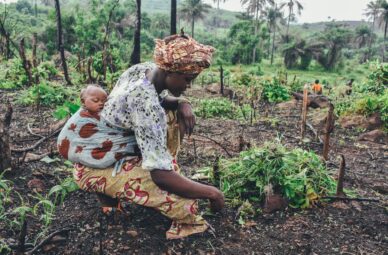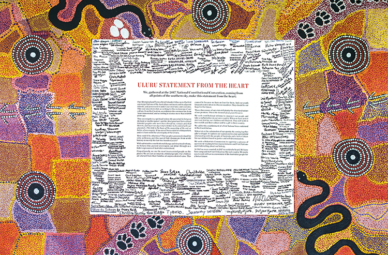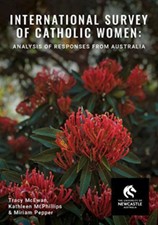
Reflection on Stirring the Waters
April 18, 2019Grail member, Elizabeth Lee, reflects on the Australian Catholic Women’s Colloquium held in Adelaide on 22-24 February 2019.
Maybe a positive starting point for my reflection on “Stirring the Waters: The Australian Catholic Women’s Colloquium” is not the Colloquium per se but rather our Grail “Celebrating Women” liturgy with which we honoured International Women’s Day and witnessed the commitment of Margaret Hetherton as a Grail member.
For this liturgy we used a number of prayers and readings from the liturgies of the Colloquium, most notably the post-resurrection appearance of Jesus to Mary of Magdalene.
Unlike, the Easter Sunday proclamation of this scriptural text, when only half the story is told (Jn20:1-9), we contemplatively reflected on the whole story as it appears Gospel of John (Jn20:1-18) including the encounter between Jesus and Mary and Jesus’ commissioning Mary as Apostle to the Apostles.
We wondered if the story, as it has been handed down to us, might not be being experienced in the now. The two male disciples, disbelieving the account of a woman, ran to the tomb, racing each other to get to the tomb first. Then finding things as Mary had told them, the tomb empty, they left the scene, believing her account. However, Mary lingered, weeping, present to the pain of the empty tomb, staying with her grief. And God responded not only through the appearance of the Angels but in the presence of the stranger, the gardener, whom Mary came to recognise as the risen Lord when she heard her name called.
On this Saturday, 20 homilies were spoken into the room in which we gathered. The deep, insightful and rich sharing, filling the room with tremendous energy - reminiscent I suspect of the day of Pentecost 2,000 years ago. And likewise, there was such rich sharing at the Adelaide Colloquium from the keynote presenters, the workshop presenters and the participants in formal and informal conversations over the two and a half days. The energy of the Spirit was palpable. But I am questioning if the words of those present will be heard?
The bishop with responsibility for the Office of Participation of Women was only able to be present for part of the Friday evening. How do the bishops hear the women weeping, if their representative is unable to be fully present to the women at this National gathering? Has anything changed from the time when the Gospel of Mark was written down?
As Dr Michele Connolly rsj pointed out to us, only one of the nine women referred to in this earliest of Gospels is actually heard speaking. The remainder appears silent, or in one case, what she said is reported by another. I fear the voices of the 160 women will also lose their power as time passes, just as the voices in the research project Woman and Man; One in Christ Jesus commissioned by the Australian Catholic Bishops Conference 20 years ago have not been heard. Nor the voices in the subsequent 2000 Social Justice statement, or the 10th Anniversary Report, or the voices at the previous colloquiums. Despite much weeping and many words shared, there has been little positive change for women in the Church in the past 20 years.
Yet I also heard the stories of passionate younger and older faith-filled women committed to responding to the call of God in their lives, be that as a CEO of an NGO; a mother caring for elderly parents, young children, disadvantaged neighbours; leaders in Catholic Education systems and Catholic health agencies; women who struggle with addictions and homelessness; Aboriginal women passing on culture and faith as elders in the community; disillusioned chancellors of dioceses, parish associates, university lecturers; nuns who have faithfully committed their lives in service of the Kingdom of God through their various congregations; country parish associates; and so many more.
So, despite so many women offering not only their time but also their compassionate, listening presence to one another, I left Adelaide with two intertwined emotions, although one dominates. Incredible anger and faint hope. While doing little to quell my anger with the Institutional Church the days in Adelaide have offered me a glimmer of hope that the church will flourish regardless of the Institution.
For in the words of Miriam Therese Winter “one by one…side by side…hand in hand…women of the world…we are bound to make a difference” for “We are the place of God’s indwelling, we are the church. We are a people.” And just as Mary of Magdalene was, “We are called to bring Good News to birth. We are the peace. We are the promise of love out-poured to renew the Earth.”
Maybe, just maybe, the one hundred and sixty of us really did have the opportunity to “Stir the Waters.”











